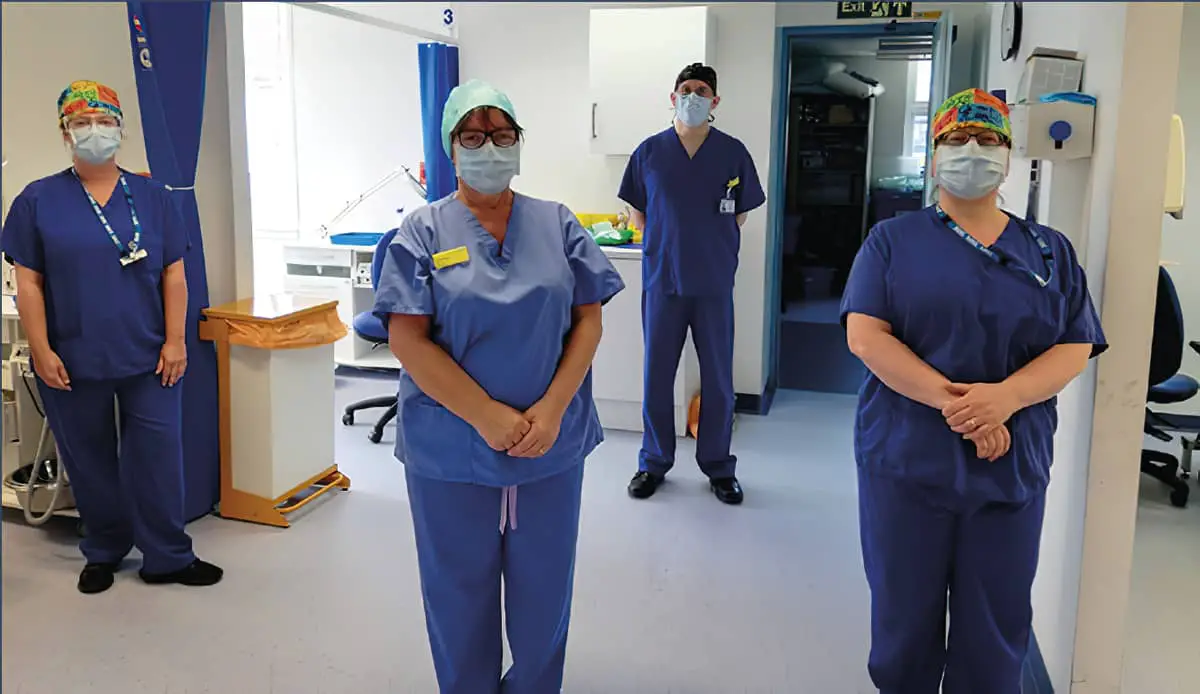Continuing to ensure we provide safe, high-quality diabetes footcare for patients throughout the pandemic has been a priority for the IOW NHS Trust Podiatry and Community Nursing teams.
Over the past 12 months the teams have worked closer together to overcome the challenges that Covid-19 has presented and keep diabetic foot and wound patients safe, mobile and at home.
Adapting overnight to changes
Diabetes makes an individual more susceptible to adverse Covid-19 outcomes. With shielding and social distancing measures in place, almost overnight the district nursing and podiatry services had to change how they worked to enable them to continue to care for podiatry patients safely.
The podiatry team have been trained to apply compression bandaging, administer insulin and Clexane injections and the district nursing teams have learnt new skills around wound and skin management to ensure patients continue to be well cared for. This innovative and collaborative approach has been acknowledged within the field of diabetic footcare.
Upskilling during Covid-19
Stephanie Stanley, Consultant Podiatrist and Head of Podiatry said,
“It has not been feasible for all our patients to attend podiatry clinic, or for staff to continue to perform their conventional roles, so Covid-19 has provided the opportunity for the podiatry team to work alongside the district nurses and up-skill so that either a podiatrist or community nurse could attend a patient at home without the need for a number of visits.
“For us this new model of working has offered the chance for both teams to share challenges, discuss possible solutions and reflect on our practice; ensuring the care provided remains patient focussed throughout. And our patients have been overwhelmingly happy to see new practitioners which has been lovely.”
Over 9,500 Islanders with diabetes
It is especially important for people with diabetes to look after their feet. Diabetes can reduce the blood supply to the feet and cause a loss of feeling. This can mean foot injuries don’t heal well and it is more difficult to notice if a foot is sore or injured.
On the Isle of Wight there is over 9,500 people with diabetes who are under the care of the Podiatry team based at St. Mary’s Hospital and who require regular assessments for their neurological and vascular risk status, wound care and foot function.
The team treat foot ulcers and work with other teams such as tissue viability and orthotics and prosthetics to provide a package of care; enabling patients to be mobile, independent and able to partake in activities they enjoy.
Rawlinson: Considerable benefits
Mark Rawlinson, Locality Manager, Community Nursing said,
“The benefits of this way of working has been considerable, both for our patients and for our podiatry and community teams. It has enabled patients and their families to benefit from reduced travel, less social contact and increased opportunity for quicker healing times as care is more responsive to their needs.
“Early intervention and prevention of pressure ulcers has reduced the need for hospital admissions at a time when it has been important for people to remain at home wherever possible.”
News shared by Isle of Wight NHS Trust, in their own words. Ed





